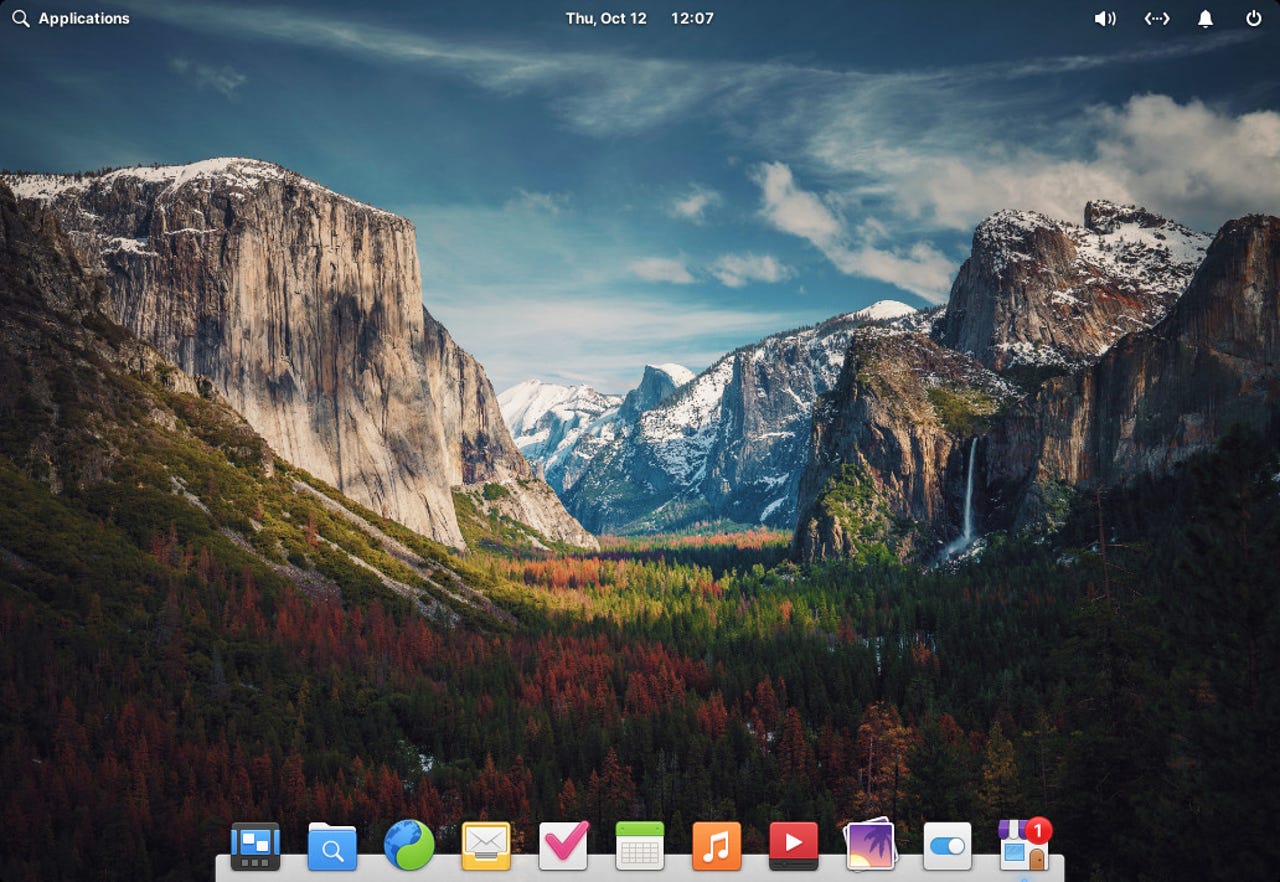Want a secure and simple Linux experience? I can't recommend Elementary OS 7.1 highly enough

Elementary OS 7.1 is still as elegant as it always has been.
Once upon a time, Elementary OS was my go-to Linux distribution. I found it to be as user-friendly as it was elegant.
Also: The best Linux laptops
With the release of version 7.1, the team has proven it's serious about keeping both the aesthetic and the experience front and center. However, this time around, they're going all in on privacy.
With this new release, the OS will alert users any time an app attempts to:
- Read location.
- Send notifications.
- Auto start and run in the background without permission.
- Access system or home folders.
- Read and write system settings.
- Attempt to escape the sandbox and gain heightened permissions.
To most people, the above list might not sound like an exciting step forward, but it is. You see, rogue applications can compromise security in ways you might never see… such as gaining heightened (and unnecessary) permissions. Should that happen with an app, there's no telling what it could do (such as access services it shouldn't or even read sensitive information from your home directory).
A rogue application with heightened permissions could reconfigure your OS such that it sends your network traffic to a proxy, where a threat actor could use that data against you. That's the type of stealthy cybersecurity attack you do not want to fall prey to.
Also: 7 things even new Linux users can do to better secure the OS
Of course, no operating system is 100% secure. But that the Elementary OS team is putting forth the effort to shore up the OS to prevent such things speaks volumes about their intention. They want to deliver a user experience that is as secure as it is simple.
And they've really knocked it out of the park with this one.
Given I've spent a good amount of time with Elementary OS, I've watched it evolve from a decent operating system to an amazing one. And 7.1 (Horus) is the best iteration of this open-source OS that I've experienced.
Also: Thinking about switching to Linux? 9 things you need to know
The developers keep the base install fairly minimal (as has been their modus operandi for some time) but with the addition of Flatpak, it's easy to install all the apps you need to be entertained, interactive, and productive.
App permissions
Speaking of installing apps, the second you do, you'll be greeted with a pop-up, wherein you can deny or grant the application access to your location. The control is in your hands.
Any time you install an app, you'll be asked to deny or grant access to your location.
Another very nice addition is the ability to control what apps are able to start at boot.
Elementary OS 7.1 defaults to no applications running at startup.
And, of course, you also have fine-grained control over what apps have permission to access. In Settings > Applications, you'll find the Permissions tab, where you can enable and disable access to your home folder, system folders, devices, network, Bluetooth, printing, secure shell agent, and GPU acceleration.
Also: Why don't more people use desktop Linux? I have a theory you might not like
You can grant or deny access to any of those features to any or all installed apps (minus system apps).
Auto-delete is auto-important
There's a feature in Elementary OS (which has been around for a few releases) called housekeeping. With that app, you can have the system automatically delete old files, such as downloaded files, old temp files, and deleted items. With the release of 7.1, the developers have added screenshot files to that list.
You might wonder how that would relate to your privacy. Well, it's simple. Imagine you've taken a screenshot of your online banking account to send to tech support. Of course, you probably forgot you took that shot and it's languishing in your home directory, waiting for prying eyes to get a look at that sensitive information.
Thanks to housekeeping, you can enable old screenshots to be removed and define the timeframe for the deletion of all those aging files.
A couple of tiny caveats
While testing Elementary OS 7.1, I did come across two tiny issues. First, the default Flatpak repo wasn't added, which meant I couldn't seem to install Flatpak apps. To fix that, I ran the command:
flatpak remote-add --if-not-exists flathub https://dl.flathub.org/repo/flathub.flatpakrepo
Once I rebooted, I could then install all the Flatpak apps I needed (at least those available from Flathub.org).
Also: How to save your Linux desktop settings in case something goes wrong
The second caveat is the Sideload app, which is supposed to keep users informed and in control when installing apps provided outside of AppCenter. However, I installed apps from the command line (using Flatpak, dpkg, and apt-get), and not once did the Sideload app open for me. I was also unable to open the Sideload app from the command line or even from the AppCenter. I'm not certain why this is the case, but hopefully, I'll solve this mystery in due time.
Even with these minor caveats, I found Elementary OS 7.1 to be a wonderful evolution of an operating system that has held a soft spot in my heart for some time.
For anyone interested in giving Linux a try, I highly recommend Elementary OS 7.1. Download an ISO now and install it on a spare PC so you can discover an operating system that takes your privacy seriously without preventing you from actually getting things done.
